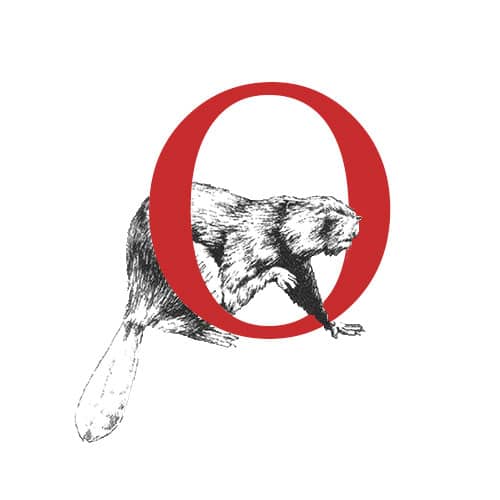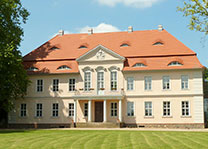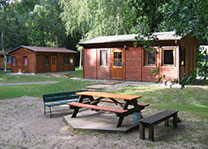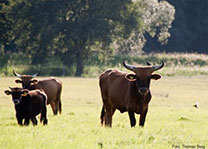In the MOZ (January 4/5, 2014), Mr Dietrich tried to resolve the currently pending disputes between the Association of Friends of the German-Polish European National Park Unteres Odertal e. V. (National Park Association) and the State of Brandenburg to list and present. He has not spoken to the club beforehand. Its presentation is therefore shortened, not understandable and also not correct. The three points of contention are summarized here again for a more relevant presentation. In addition, the National Park Association’s review of 2013 and the outlook for 2014 can be found in the 2013 Lower Oder Valley National Park Yearbook.
1. Company floor reorganization
The focus of 2013 for the Lower Oder Valley was the reorganization of the company floor that was ordered 13 years ago. After little had happened for many years, everything should now happen very quickly. This has created quite a mess for property owners and users. Nevertheless, on June 11, 2013 the State Office for Rural Development, Agriculture and Land Reorganization (LELF) ordered the provisional property briefing. As the name suggests, it is preliminary and not final. Like many others, the association had lodged an objection and applied for interim legal protection proceedings to restore the suspensive effect of its objection.
Unfortunately, the association was unable to prevail in the interim legal protection proceedings before the Higher Administrative Court in Berlin-Brandenburg. The Higher Administrative Court was of the opinion that the association could be expected to wait for the main proceedings and until then to accept the provisional assignment of possession. The association has a different legal opinion and will pursue the objection and exhaust the legal process.
The association has always made it clear that it considers land reorganization in the Lower Oder Valley to be necessary. However, he has always given preference to an accelerated procedure according to § 91 Land Consolidation Act (FlurbG) over the corporate land consolidation according to § 87 FlurbG, because he relies on the principle of voluntariness and rejects expropriations. But the state of Brandenburg has decided in favor of corporate land consolidation. This can also be used to organize the areas in the Lower Oder Valley.
However, it is not acceptable for the state of Brandenburg to take over predominantly Zone II areas with this corporate land consolidation and to allocate predominantly Zone I areas (total reserves) to the private national park association, which cause running costs, but none Enable more income. In all German national parks, total reserves are owned by the state, only in the Lower Oder Valley should they be predominantly assigned to a private association. We consider that to be illegal.
2. Funding recovery
We also consider it problematic if the state of Brandenburg does not exchange exchange areas, which the association had acquired with financial support and the express consent of the state in the previous millennium, in the core area as part of the land reorganization and instead demands the funding back. With the arrangement of the land reorganization, the state itself has taken responsibility for the exchange of space, and the association’s attempts to exchange the land were hindered or even prevented by the responsible state office. The association has always insisted that these areas be exchanged for the core area. The club cannot be reproached for not having exchanged it so far. In the opinion of the association, the funds raised by the association 20 years ago should not be repaid. If the judgments of the competent courts are different, the association will of course pay back the funds.
3. Proof of final use
In the years 1992–2000, like all agricultural businesses, the National Park Association received subsidies and used them appropriately. Like all grant recipients in Brandenburg, he has kept a proof of use for each funding notification, which has been checked by the State of Brandenburg in a complex process and expressly confirmed as correct. So far, no one has raised the charge that the association has not correctly used or billed its funds. Such allegations would also be untenable.
Many years later, however, the responsible Brandenburg ministry wanted a final report for the entire project in addition to the annual proof of use. In principle, the National Park Association was ready for this. However, the ministry’s demands were so detailed and fragmented that 20 years later the association was no longer able to provide the required information with the best will in the world. The only way for the club was to take legal action. The administrative court in Potsdam supported the legal position of the association and stated that the annual proof of use was sufficient, a final proof of use is no longer required. The Higher Administrative Court, on the other hand, said that citizens and taxpayers were entitled to a final report, but the State of Brandenburg could only request one to the extent that the National Park Association would have to provide it. And so it was quickly agreed before the Higher Administrative Court that the association would deliver a final report, but only within the scope of its possibilities, i.e. essentially in the summary of the annual proof of use. In our opinion, everything could have been done earlier and less complicated.
4. Club goals
Since it was founded in 1992, the National Park Association has always been committed to the same goals as part of its civic engagement, for nature conservation, ecological agriculture, environmental education and nature research. Nothing has changed in that regard for 20 years.
In 2000, however, the state of Brandenburg radically changed its original strategy of entrusting the national park association with the establishment of its only national park and has since wanted to run the park itself. For this, the state of Brandenburg has waived at least 10 million euros in funding from the Federal Agency for Nature Conservation. Therefore, an unnecessary amount of money from the Brandenburg state budget had to be invested in the national park project. That doesn’t seem to be particularly smart and far-sighted, as the nature conservation funds in the state of Brandenburg are not enough, not even for the nature parks and biosphere reserves that have already been designated. It does not seem to be particularly responsible to concentrate all the financial resources and personnel positions still available in the state of Brandenburg for nature conservation in the small national park, even at the risk of having to close or give up the nature parks. In any case, the responsible environment minister, Anita Tack (Die Linke), obviously wants to prevent private sponsors from showing how they can manage large protected areas just as well or even better, in any case cheaper. Of course, sovereign tasks always remain with the responsible state authorities. However, if the competent authorities do not want their experience and competence in the national park because they are afraid of private competition, the national park association can also set other priorities. One of these additional focal points is the combination of nature conservation and ecological agriculture on the wild pastures, on which aurochs-image breeds, water buffalo and bison graze. That is good for the biodiversity of the floodplain, good for the farmers, good for the tourism industry and good for all visitors. It is also good for the free and happy bovines and healthy for the consumers.
Nobody can blame the National Park Association for securing their economic existence and ability to work independently for 13 years without funding, creating jobs and pursuing their goals independently. Funding should always only be a boost to financing, something that would also be desired from other subsidy recipients.
The association is still very interested in realizing its four above-mentioned association goals in the national park. But he can also do this in the areas actually adjacent to the national park, as he is not bound by the national park borders. In any case, he does not see himself as the administrator of total reservations, because that is, as everywhere in the world, also in Germany, a real state task.








